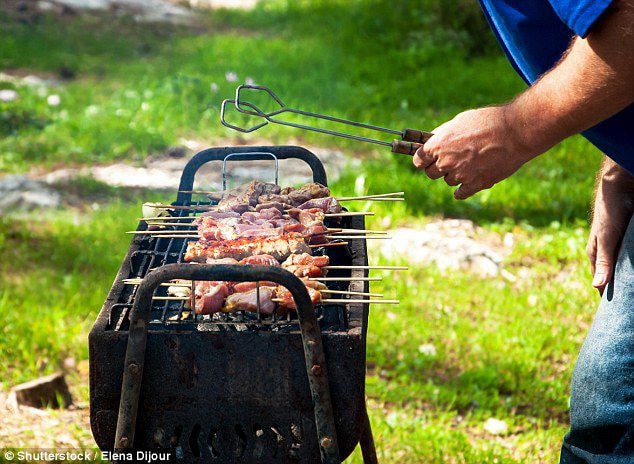Tips to avoid digestive diseases in summer
Eating outdoors in the hot weather or cooking at home are both enjoyable summer days. But if not careful, they can turn into disasters for attendees.
When going on a picnic:
Stay away from rare beef: Bacteria and viruses can live on the surface and can spread deep into the meat when you use a skewer to turn it. The same goes for hot dogs.
“The best way to check if meat is done is to use a meat thermometer. The meat should be at least 72°C internally. If you don’t have a meat thermometer, you can look at the juices running through the meat. Cut into the middle of the meat to see if it is still pink. If it is, you need to continue cooking until it is done.
Cleaning the Grill: Grill plates are often considered safe because they are placed over a hot fire, but they are actually very dirty and can cause food poisoning.
 |
“Studies have shown that E.coli can survive for 28 days on steel surfaces so keep them clean,” says health expert Dr Lisa Ackerley.
Always cook chicken before grilling: Salmonella bacteria are commonly found in pork, eggs, unpasteurized milk, meat and water and can cause poisoning. Chicken is a favorite habitat for this bacteria,” Dr. Hargin.
Therefore, it is best to put the chicken in the oven before baking to let the juices drain out (oven time is about 20 minutes at 180 degrees Celsius).
Don't sit on the grass: Green lawns may look inviting, but public areas like these often harbor harmful germs that can be shed by animals or are naturally present in the soil.
Toxoplasmosis rarely causes health symptoms, but in some cases it can cause swelling, especially in the throat or forearms. These symptoms resemble those of the flu.
Campylobacter bacteria cause the most food poisoning, leading to fatigue, diarrhea and long-term health consequences.
“I don't want to say that no one should sit on the ground, but it's better to spread something out before sitting down for hygiene reasons,” health experts recommend.
When in the kitchen
Melted ice cream should not be refrigerated: “Ice cream needs to be eaten as soon as it comes out of the fridge, and if it has melted, you either eat it right away or throw it away because the sugary environment is ideal for bacteria to grow. And when you put melted ice cream in the fridge, the bacteria will have time to multiply before going dormant and harming you when you eat it,” said Professor Oxford.
Don't leave milk on the refrigerator door: It's best not to leave milk on the refrigerator door, especially in hot weather.
Refrigerators usually cool food quickly to 1.6-5 degrees Celsius, but food left in the refrigerator door will often be exposed to hot air when the refrigerator is opened, so milk will easily spoil before its expiration date.
Wash kitchen towels with hot water: Regular kitchen sponges contain up to 10 million bacteria per 2.5cm2, 200 thousand times dirtier than a toilet seat.
According to Dr. Ackerley, kitchen towels contain billions of bacteria, including E.coli bacteria that cause severe diarrhea.
According to dantri.com






